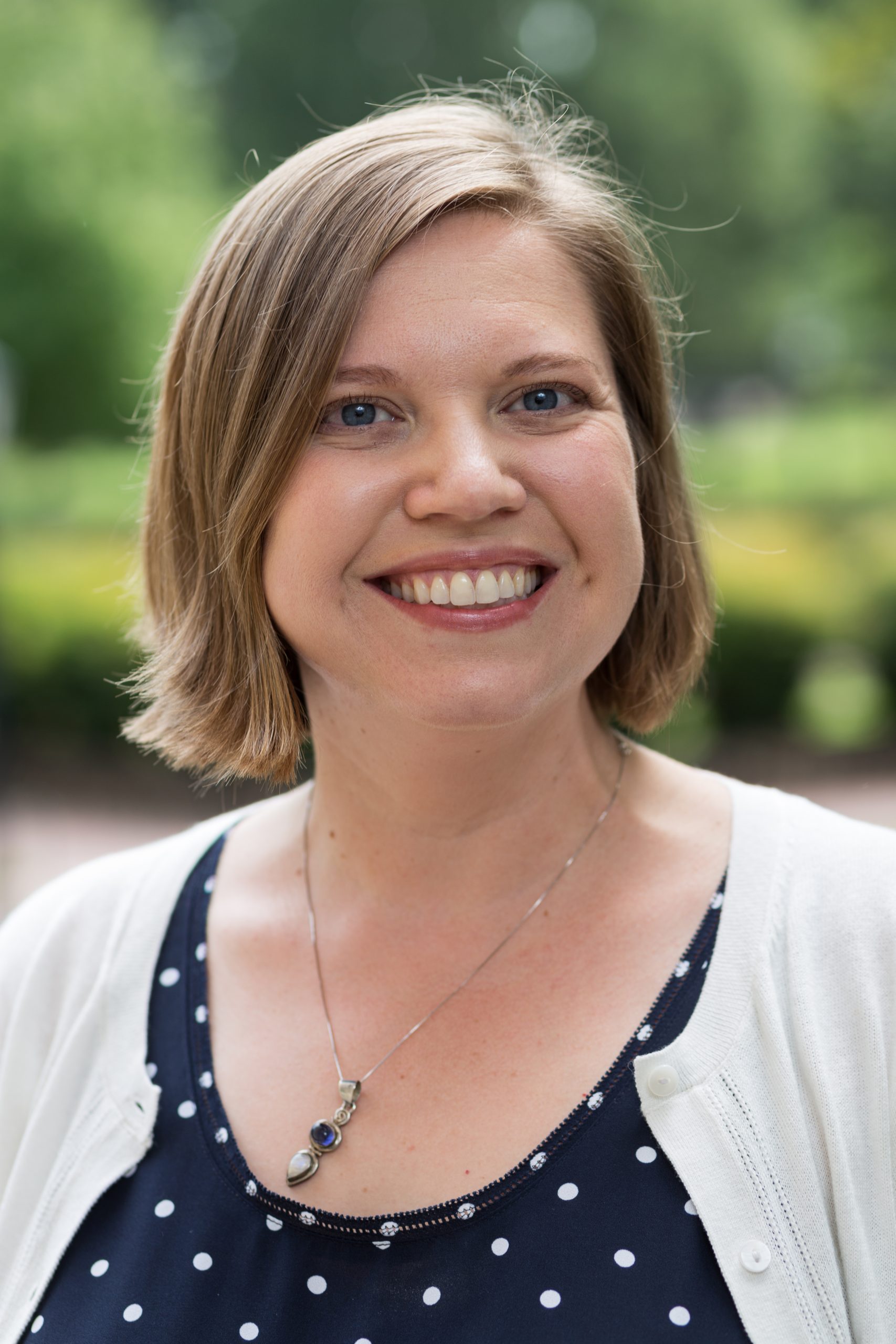
Kirsten Adams is a doctoral candidate at the UNC Hussman School of Media and Journalism. Her project submission is titled, “The Righteous and the Woke: Evangelicals, social justice warriors, and the moralization of U.S. political communication.” Use the links below to check out her project poster and watch a short presentation Adams has prepared about her project.
Abstract: American democracy only functions when political parties and actors recognize their opposition as legitimate, but partisans increasingly perceive and convey the ‘other side’ not just as factually wrong but as morally wrong. In 2016, Pew Research Center discussed the 2016 presidential campaign as “unfolding against a backdrop of intense partisan division and animosity.” Today, these divisions have deepened along moral lines, with a majority of partisans viewing members of the other party as more immoral than other Americans.
This dissertation project analyzes and empirically documents the “moralization” of American political communication and media. I argue that morality is shaped and demarcated through communicative processes and is strategically performed for political ends. Politicians make strategic decisions about whether and how much to frame their positions as fundamental, moral beliefs about right and wrong. At the same time, partisan and opinion media are increasingly central sites for political actors to make moral claims as they attempt to get elected and re-elected, to obtain political power, and to achieve policy goals.
Building upon research arguing that partisanship is mapped onto social identities, I conduct mixed-method analyses of elite political discourse to analyze how the left and right advance rival moral claims, “sorting” partisans along moral lines. These studies reveal how intricately morality is intertwined with political discourse in three empirical cases, each in the context of the 2020 U.S. election. The first case maps the contemporary space of partisan media and political commentary as an arena for moral contests. The second examines moral campaign appeals by presidential and congressional candidates. The third analyzes how even political issues not traditionally understood to be ‘moral’ issues are articulated as such by political actors. Central to this research is a question imperative to our current political moment: If all political claims become moral claims, how can citizens deliberate over fundamentally different understandings of what is moral?

Soohyun Hwang is a doctoral candidate of Health Policy and Management at the UNC Gillings School of Public Health. Her project submission is titled, “Identifying strategies for comprehensive implementation: A qualitative analysis of cancer programs.” Use the links below to check out her project poster and watch a short presentation Hwang has prepared about her project.
Abstract: Background — The Commission on Cancer (CoC) seeks to promote comprehensive approaches to implementing survivorship programs among accredited cancer programs. In practice, cancer programs’ approaches range from cursory (e.g., developing care plans without robust services) to comprehensive (e.g., facilitating follow-up care). To inform cancer programs’ efforts, the objective of this study was to identify implementation strategies that distinguish cancer programs with comprehensive survivorship programs from cursory survivorship programs’ implementation strategies.
Methods — We sampled 39 cancer programs across the United States with approaches to survivorship program implementation ranging from cursory to comprehensive based on LIVESTRONG survivorship care consensus elements. Within sampled cancer programs, we conducted in-depth semi-structured interviews with a total of 42 healthcare professionals (1-2/program). Using a subset of implementation strategies from the Expert Recommendations for Implementing Change project, we used template analysis to identify strategies unique to cancer programs with comprehensive approaches by qualitatively comparing them to cancer programs with cursory approaches. We co-coded initial transcripts to ensure consistency and resolved conflicts before independently coding the remaining transcripts.
Findings — Cancer programs with comprehensive survivorship programs had formal committees with ample opportunities to evaluate the progress, revise roles, and acquire multiple stakeholders’ support. Establishing systems for providing survivorship care enabled these cancer programs to meet accreditation requirements and improve processes. Buy-in from upper management and key physicians was deemed crucial in leveraging cancer program resources. These programs also defined clear roles with shared accountability among multidisciplinary groups. Like cancer programs with comprehensive survivorship programs, many cancer programs with cursory programs also had formal committees; however, cancer programs with cursory programs lacked buy-in from key stakeholders, relying on less staff or a champion for implementation effort. Cancer programs with cursory programs had limited resources, cumbersome processes, and team members with unclear roles.
Implications for D&I Research — Identified strategies and trajectories from this study will inform US cancer programs’ approaches to implementing comprehensive survivorship programs.

Andrea Lorenz Nenque is a doctoral candidate in the UNC Hussman School of Media and Journalism. Her project submission is titled, “Urgency, Ambition and Authenticity: Exploring the experiences of women running for office post-2016.” Use the links below to check out her project poster and watch a short presentation Nenque has prepared about her project.
Abstract: A record number of women have run for office since 2016, many having never considered doing so until the 2016 election. In-depth interviews with 37 women who ran for local and state office since that time reveal that the urgency many of these new candidates felt prompted campaign strategies with a more authentic self-presentation than in years past, with candidates citing a frustration with the way that female politicians had to change themselves to fit within gender stereotypes to get elected. This study includes a diverse range of participants from different parties, geographic areas, and intersecting identities who have run for levels of office ranging from statewide positions to judicial seats and a variety of county and municipal roles.
This study addresses several key areas of research: How intersectional identities affect presentation in campaigns; What issues prompt women to run for office; and how newcomers have bypassed traditional recruitment processes, which have been found to contribute to the gender gap in elected office, to essentially recruit themselves with support from state nonpartisan organizations rather than political parties.
Building on previous research, this study offers a glimpse of an updated landscape of local political campaigning as it pertains to gender and identity, featuring experiences of newcomers who had previously been overlooked through traditional recruiting channels. These findings can ultimately help provide answers to the normative questions of how political parties can better recruit and support women running for office, especially those with intersecting identities, and what structures need to be in place for our democracy to be more representative, especially at the local and state levels. This study also offers normative solutions based on these women’s experiences to create systems that can better represent women in general and especially women with additional hurdles based on their experiences with the currently-in-place racial, class and social structures.
